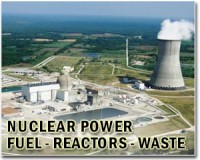 |
Tehran (AFP) Nov 18, 2009 Iranian Foreign Minister Manouchehr Mottaki said on Wednesday Tehran had ruled out sending any low-enriched uranium abroad but would consider a simultaneous fuel swap inside the country, a report said. Mottaki according to the ISNA news agency also said the Islamic republic is ready for another round of talks with world powers over securing fuel for its Tehran research reactor. The first meeting was held in Vienna on October 19. A UN-backed proposal drafted at that meeting, which would have seen Tehran's stocks of low-enriched uranium sent out the country for further enrichment, was not feasible, Mottaki said. "We reviewed it ... from an economic and technical aspect. We will definitely not send out our 3.5 percent enriched uranium," the minister said. "It means that we will (instead) consider swapping the (nuclear) fuel simultaneously in Iran," he added. Mottaki added that "Iranian experts are reviewing the issue of swap to see how much fuel can be transferred. The amount they mentioned for the swap is not acceptable ... and our experts are still studying it." Under the UN-backed deal, Iran would rely on Russia and France to process low-enriched uranium to fuel a Tehran reactor that makes medical isotopes. The West believes the plan would leave the Islamic republic without sufficient material to make a nuclear weapon, at least from stockpiles known to the international community. "We have called for another meeting of the technical people who were part of Vienna talks and we will explain our considerations. But so far such meeting has not convened," Mottaki said. US officials had on Tuesday expressed pessimism that Iran would respond positively to the nuclear fuel deal hammered out in Vienna, while US President Barack Obama warned that Tehran was "running out of time" on the issue. The UN's atomic watchdog, the International Atomic Energy Agency (IAEA), on Monday called for more information from Tehran about a previously secret nuclear site. It said it had been told by Iran in a letter that the new site near the holy city of Qom should be operational in 2011, heightening fears Tehran is edging closer to developing a nuclear bomb. Iran has been enriching uranium for several years at a plant in the central city of Natanz, and maintains the newly unveiled second enrichment plant near Qom was a back-up unit should Natanz be bombed. Enrichment lies at the centre of fears about Iran's nuclear programme as the process, which makes nuclear fuel, can also be used to make atomic bombs. Iran vehemently denies seeking a bomb, insisting it only wants enrichment for peaceful purposes and to make fuel for power plants although its first and much-delayed plant, which is being built by Russians, is yet to come on line. Despite three sets of UN sanctions for its refusal to halt enrichment, Iran insists it has a right to the sensitive work as a signatory to the nuclear Non-proliferation Treaty. Share This Article With Planet Earth
Related Links Nuclear Power News - Nuclear Science, Nuclear Technology Powering The World in the 21st Century at Energy-Daily.com
 Poland's PGE, France's EDF ink nuclear deal
Poland's PGE, France's EDF ink nuclear dealWarsaw (AFP) Nov 18, 2009 French energy giant EDF and its Polish counterpart PGE have signed a cooperation deal, PGE said on Wednesday as Poland launches a nuclear power drive. In a statement, PGE said it had inked the accord with EDF on Tuesday. The two groups have pledged to undertake feasibility studies for the construction in Poland of a new-generation EPR reactor, a system being developed by French nuclear ... read more |
|
| The content herein, unless otherwise known to be public domain, are Copyright 1995-2009 - SpaceDaily. AFP and UPI Wire Stories are copyright Agence France-Presse and United Press International. ESA Portal Reports are copyright European Space Agency. All NASA sourced material is public domain. Additional copyrights may apply in whole or part to other bona fide parties. Advertising does not imply endorsement,agreement or approval of any opinions, statements or information provided by SpaceDaily on any Web page published or hosted by SpaceDaily. Privacy Statement |